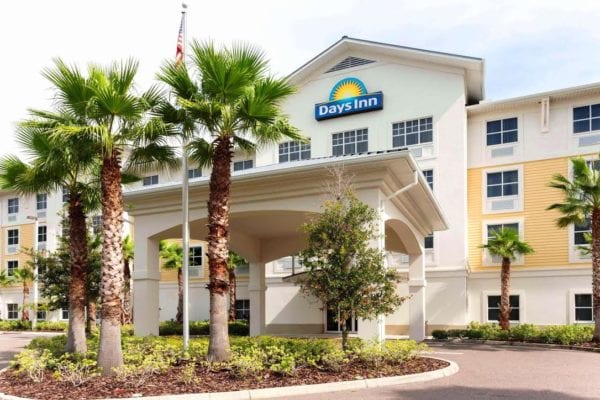Skift Take
Yelp's efforts to see tighter regulation of Google's business practices could have more success this time around than several years ago, when the U.S. Federal Trade Commission dropped the ball. European Union regulators have really cast the previous U.S. effort in a shameful light, and the Trump team may be more sympathetic than the Obama administration.
— Dennis Schaal
Yelp, TripAdvisor, and Consumer Watchdog have formed a new coalition to pressure U.S. regulatory authorities to force Google to become an unbiased broker of internet content, particularly when it comes to local search results, including travel and restaurants.
The coalition, which Yelp is spearheading following CEO Jeremy Stoppelman appearance Sunday on a 60 Minutes segment, How Did Google Get So Big, is calling on Google to reindex content from its own businesses, such as Google hotels, flights, and restaurants, so Google would compete on a level playing field against other businesses.
If third-party content provides a better answer than results from Google’s own products — and competitors argue they often do — then there should be clear links to competitors websites, the coalition argues.
“We can keep the internet honest by helping Google continue to focus on the user,” a new video on the coalition website, Focus on the User, argues. The website went live Tuesday night.
As has been well-documented, Google generally positions its one-box answers, which lead consumers to its own for-profit businesses and advertisers, on the top of web pages and on mobile first-screens, crowding out competitors. Organic, or free, natural search results, are often several web pages or screens removed from the all-important first batch of results.
Yelp had plenty of notice about the 60 Minutes segment, which took a sharp look at Google’s biased business practices, because producers at the show and Yelp have been in contact for about three years, said Luther Lowe, senior vice president of public policy at Yelp.
In addition to taking Google to task in the United States, Yelp has filed a new complaint calling on European Union regulatory authorities to extend their probe of Google from shopping to local search, which makes up about 40 percent of Google search queries, Lowe said. The complaint itself is not publicly available, but follows the European Union’s decision last year to fine Google $2.7 billion over its search practices.
In the United States, Yelp and the coalition have undertaken an unusual strategy — they are running advertisements on Twitter, Facebook and Instagram targeted to Google employees, urging them to be “introspective” about Google’s search practices, and to cease “cutting off the oxygen to an open internet,” Lowe said.
In targeting Google employees on popular social media platforms, Yelp may be taking a page out of Russia’s tactics to influence U.S. voters in the 2016 presidential campaign — albeit without the disinformation campaign. But the Russians’ social media efforts do prove that these platforms can be very influential in swaying the opinions of a targeted group of people.
If Google would stick with its original mission to serve consumers, then links to third-party content would soar from 2 percent click-through rates to 25 percent, Lowe argued. Instead, he said, Google uses legacy content from Google+ and its “thin” Google reviews to the detriment of competitors and ultimately consumers.
“Google has deviated from its ethos and there is a way to course-correct,” Lowe said.
Google didn’t immediately respond to a request for comment, although in the past it has said that its one-box answers serve consumers because it efficiently provides relevant results, and eliminates the need to navigate to another website.
Several years ago, during the Obama administration, the U.S. Federal Trade Commission studied Google’s business practices, and although the commission’s competition staff deemed some of them “unlawful” and recommended that the FTC take action, a politically connected Google staved off any regulatory action. That contrasts starkly with the aggressive stance of the European Union, whose top regulator has termed some of Google’s practices as “illegal.”
Yelp feels that there have been signals from the U.S. Congress and the Trump administration, including probes of Facebook and a lawsuit to block AT&T’s acquisition of Time Warner, that would bring regulatory efforts to rein in Google closer to reality.
While Yelp and the new coalition are appealing to Google’s employees to influence their company’s practices, they are very much working with regulators to step up enforcement efforts.
Lowe said Yelp has been talking to antitrust regulators for “a long time,” and that is not going to let up.”
The Yelp-led coalition, which includes TripAdvisor, Consumer Watchdog, Fight for the Future, American Family Voices, Demand Progress, and Rootstrikers, is notable for its abstentions — Expedia and Microsoft, for example.
Those two companies Fair Search coalition, which opposed Google’s acquisition of ITA Software starting in 2010, and has opposed Google’s practices with European regulators, as well. Yelp was not part of that coalition because it was Microsoft- and Bing-driven. Expedia didn’t immediately respond to its request for comment about its lack of participation in the new coalition.
When asked about TripAdvisor’s involvement in the new Yelp-led coalition, a TripAdvisor spokesperson declined to comment. TripAdvisor indeed is a coalition member, however, and backs its aims.
For his part, Lowe of Yelp doesn’t view the coalition as anti-Google, saying the coalition is trying to push Google to get back on track and focused on its original mission of helping consumers find the best content.
“If anything, this is a pro-Google campaign,” Lowe argued.
Here’s the new video the coalition posted to outline its aims.





